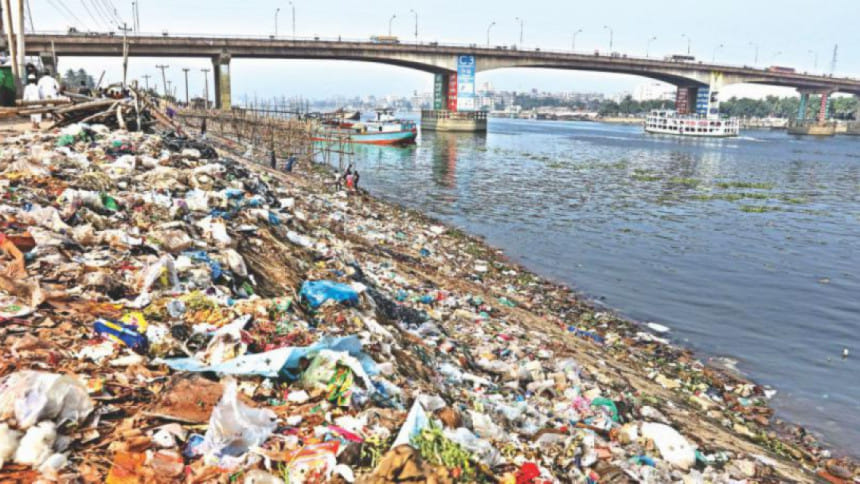Plastic waste a threat to soil fertility

Plastic pollution is deteriorating the germination capacity of soil by killing larvae, microbes and earthworms that enriches the soil's fertility, said speakers at a seminar yesterday.
They made the remarks at the event jointly organised by seven developmental organisations at Department of Environment auditorium in the capital's Agargaon marking World Environment Day.
The organisers are Bangladesh Resources Centre for Indigenous Knowledge, Bangladesh Environmental Lawyers Association, Environment and Social Development Organisation, A Better Bangladesh Trust, Bandhu Foundation, Green Savers, and Association for Land Reforms and Development.
"Research shows how unplanned disposal of plastics damages the soil 23 times faster than it affects the sea. The presence of toxic chemicals like chlorine in plastics hampers the growth of plant roots and its nutritional intake. They also permeate into the food chain, affecting animals and humans," said biodiversity and ecology researcher Pavel Partha while delivering the key-note presentation at the seminar.
According to a research conducted by National Geography, 73,000 tonnes of non-biodegradable plastic enter the sea annually through the Padma, Meghna, and Jamuna, he mentioned.
"A study conducted by the Food and Agriculture Organization said they found microplastics in the bodies of 84 percent of sea turtles, 44 percent of sea bird, and 43 percent of sea mammals," he added.
Begum Habibun Nahar, deputy minister for environment who attended the event as the chief guest, said "We expect to devise an alternative to plastics by 2026 but until we do, we have to avoid single-use plastics as much as possible."
Shamsul Huda from ALRD moderated the seminar while Abdul Hamid from Department of Environment chaired the programme.
Syeda Rizawana Hasan, chief executive of Bela, Shahriar Hossain from Esdo and Kazir Imtiaz Hasmi, advisor of Bandhu Foundation, also spoke at the seminar.

 For all latest news, follow The Daily Star's Google News channel.
For all latest news, follow The Daily Star's Google News channel. 



Comments